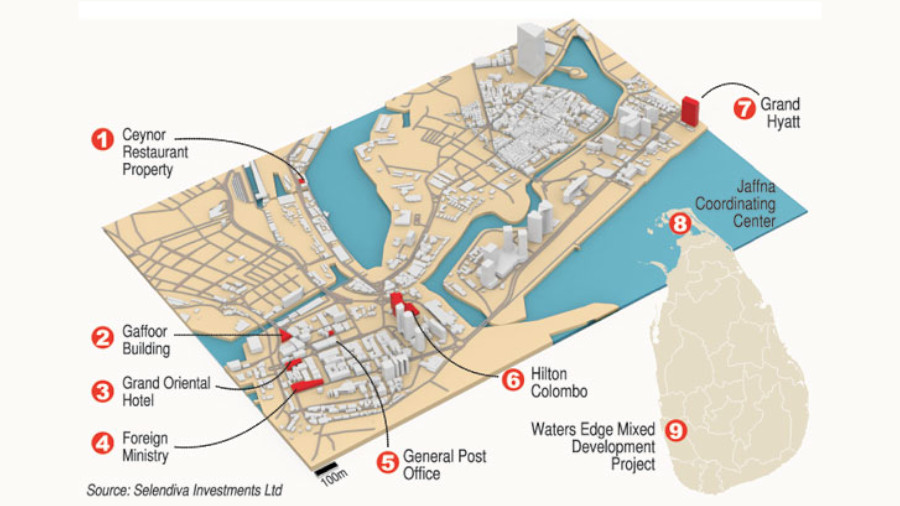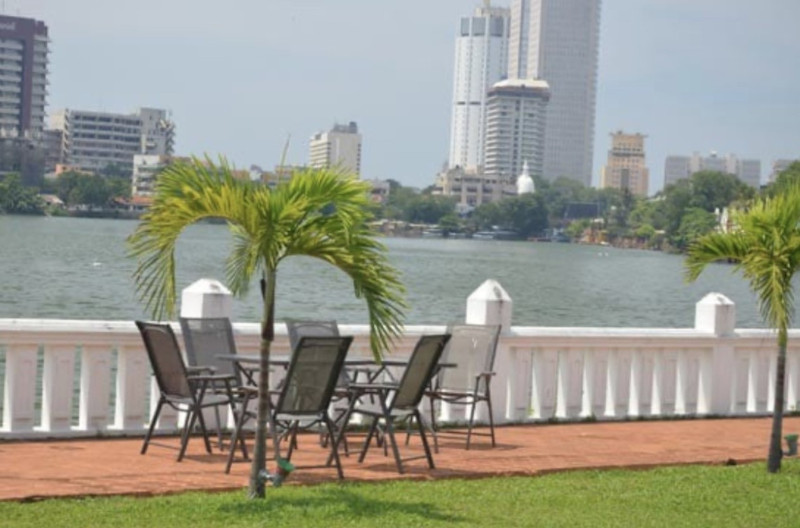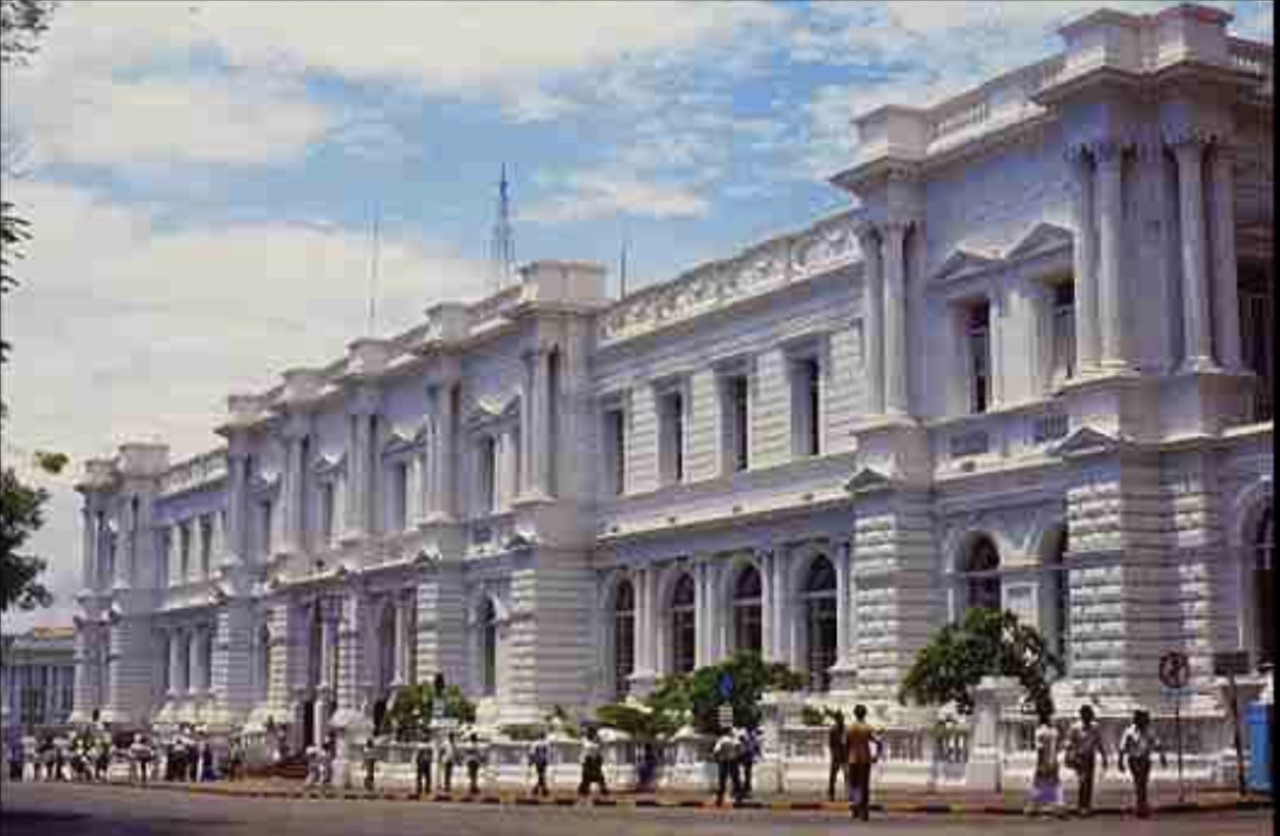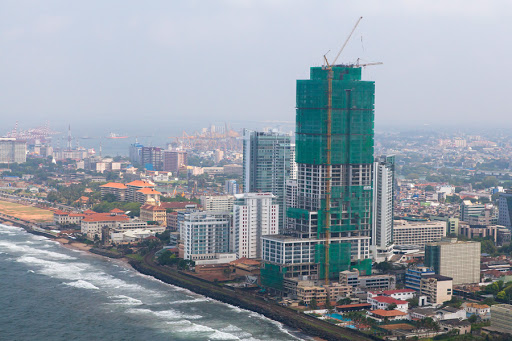Sri Lankan Government Follows Singapore’s Temasek Redevelopment Model
- Dormant Assets To Be Listed On Colombo Stock Exchange
- China’s BRI Investment Kick-Starts More Sophisticated Local Growth
The Sri Lankan Government is to launch the first of three new ‘Special Purpose Vehicles’ (SPVs) under the Sri Lankan Government owned Selendiva Investments. The as yet unnamed SPV is to be registered this week to raise capital for the development and revival of three hotel properties: the long-overdue Grand Hyatt Colombo, Colombo Hilton, and the Grand Oriental Hotel. All have lain partially built on prime land, dormant projects after Sri Lanka was hit with a combination of political in-fighting, a lack of finance, terrorist bombings, and what is now the third consecutive year of low tourism income.
Forty-nine percent of the SPV’s shares will be listed on the Colombo Stock Exchange, said Shamahil Mohideen, Selendiva Investments Chief Executive Officer. The money will be used to complete the Grand Hyatt, refurbish rooms at the long-neglected Colombo Hilton and enable expansion of the Grand Oriental Hotel.
The SPV will also put funds into a subsidiary, Waters Edge Recreation, which will build and operate mixed development projects on identified Urban Development Authority-owned or acquired lands around Colombo and the Jaffna International Coordinating Centre.
SPVs are subsidiaries created by a parent company–in this case, Selendiva Investments–with their own assets, liabilities, and legal status. Formed in July last year, Selendiva is owned 100 percent by the Sri Lankan Government Treasury. Two more Sri Lankan SPVs are being planned; one for a real estate cluster and another for the creation of a “heritage square” in Colombo. All of them target under-performing State-owned assets.

The re-structuring of dormant assets into an SPV to then be listed is part of a scheme led by Sri Lanka’s Urban Development and Housing Ministry to follow Singapore’s Temasek Holdings model. Temasek is owned by the Singapore Government and is an active investment vehicle, listed on the Singapore stock exchange. Sri Lankan officials followed a 10-day seminar organized by Temasek while the company’s senior representatives visited Colombo earlier in the year to advise and assist.
Once the first SPV raises capital for Selendiva, it will proceed to the next and against start trading shares for fresh development funds. Other projects to be placed into SPV development include the historic General Post Office, the Ministry of Foreign Affairs, as well as the Ceynor and the Gaffoor buildings in Dutch built Colombo Fort. The same process will be followed.

View from the Ceynor Seafood Restaurant in Colombo 10. Much of Colombo has a Singapore colonial vibe. Selendiva’s investment plans will upgrade and improve this historic South-East Asian capital.
The new SPV will be a holding company combining Canwill Holdings (Pvt) Ltd, (owners of the Hyatt), Hotel Developers (Lanka) Plc (owners of the Hilton) and the Bank of Ceylon owned Hotels Colombo Ltd (owners of the Grand Oriental Hotel). Canwill is owned by the Sri Lanka Government’s Sri Lanka Insurance Corporation, Litro Gas, and the Sri Lanka Employees’ Provident Fund.
Together, Canwill, HDL and Hotels Colombo will hold 90 percent equity in the SPV while 10 percent will be with Selendiva Investments as “promoter shares” since it will help raise capital for the projects. Selendiva will also have a golden share giving it veto power.

The Colombo General Post Office. The Singapore Government’s Temasek Investment Fund turned the outdated Singapore General Post Office into the world class Fullerton Hotel and revitalized the entire Clark Quay area.
The result will be the consolidation of the balance sheets of these three assets under the holding SPV, issuing shares to the existing shareholders of the three separate entities and then listing the SPV on the Colombo stock market to generate funds.
When listed, the shares may be purchased by anyone. The companies will be run by a professional management team. The timing is good, with a lot of pent-up investment capital in Sri Lanka. Just last month, Prime Lands Residencies’ LKR 1.9 billion (US$9.65 million) IPO on the Colombo stock exchange was fully oversubscribed.
While investing in these projects are long-term plans, there are immediate priorities. The first is to complete the Colombo Grand Hyatt Hotel, which has stagnated since 2012 amidst numerous issues. Just 24% of the work was done at a cost of US$30 million. The termination of an Italian contractor led to an award of €7.2million.

The Colombo Grand Hyatt. Prime position, ocean views, uncompleted for nine years.
The Grand Hyatt is now being developed with local firm Maga Engineering as the main contractor and is scheduled to open with 222 rooms including restaurants at the end of December this year. The franchise owner, Hyatta, has not withdrawn from the project and may also buy shares. This would be a similar arrangement to the structure of the Colombo Hilton which is run by the global Hilton franchise but owned by the Sri Lankan Ministry of Finance.
The Grand Oriental Hotel was recently restored and refurbished at a cost of US$1.4 million. “Now we want to create marketability for it and to expand the remaining area,” Mohideen said. “There is another 160,000 square feet of the York Street building which is also dormant. We want to raise funds from the stock market via the SPV to improve that area.”
None of the buildings will be knocked down. They are all protected buildings and will be restored.
Whatever properties Selendiva Investments develops are leased on commercial terms from the Sri Lankan Urban Development Authority (UDA). “The UDA acquires those lands and gives them to us on a long-term lease,” Mohideen said. “It’s the same as they would do for a private investor except here it’s a Government organization paying the same commercial terms.”
There has been media speculation that this initiative is part of a scheme to hand over valuable properties to China. It is possible that Chinese investors may purchase shares, however these would be as a tradable investment, applicable to any investors. Singapore’s Temasek are equally as likely to invest.
“It’s important to say we cannot discriminate against investors,” Mohideen told the Sri Lanka Sunday Times. “But we will have a transparent process, whoever it is. And there will be accountability for any losses made. It will be our responsibility to transform these institutions. There isn’t much for tourists to see in Colombo. We have to create the vibrancy, the attraction, because it creates jobs and increases foreign exchange income. We have so many properties, colonial buildings, which are completely dilapidated. We must restore them and exhibit them. It will create that climate, ambience and culture to draw in tourists and create a different branding for Colombo city.”
The accountability comes from the stock market listing which mandates adherence to corporate governance and transparency, among other rules. Financial statements will be available online. Separately, reports must be submitted every six months to Cabinet. Accounts are audited by the National Audit Office.
“It is good to see the Sri Lankan government becoming more sophisticated in their development plans for the country” says Chris Devonshire-Ellis of Dezan Shira & Associates, himself a property investor in the country. “It has been interesting to see the country gain confidence with the assistance of initially Chinese investors when no-one else would. That Belt and Road built infrastructure platform has enabled Sri Lanka to further develop financing options and move into capital markets following Singapore’s highly successful Temasek model creates further stability and sustainable wealth creation. It will be fascinating to see what other future projects Selendiva bring into their portfolio. Sri Lanka has a real treasure trove of under-utilized assets, from Galle Fort to Trincomalee and Jaffna, and this model should attract increasing amounts of sovereign, institutional and corporate foreign investment.”
Related Reading
- Sri Lanka’s Capital Opens South East Asia’s Tallest Tower, Using Belt & Road Funding
- China To Invest US$300 Million In Sri Lanka Based Export-Oriented Tyre Factory
About Us
Dezan Shira & Associates have a 30-year history of assisting UK and other foreign investment into Asia, and maintain offices in Japan, Malaysia, Singapore, and Vietnam. We also have offices throughout China, ASEAN, and India. Please contact us at asia@dezshira.com for local market intelligence and market entry assistance, or visit us at www.dezshira.com





